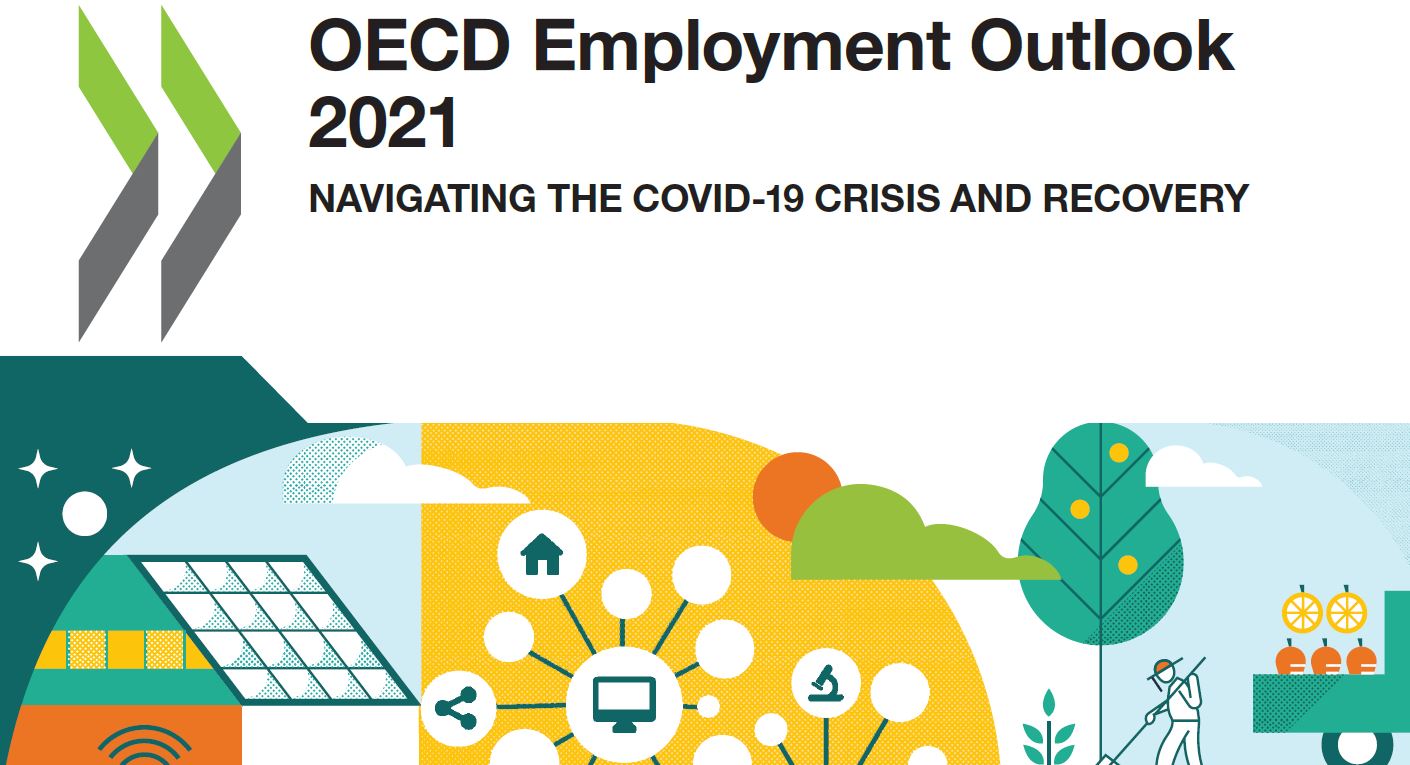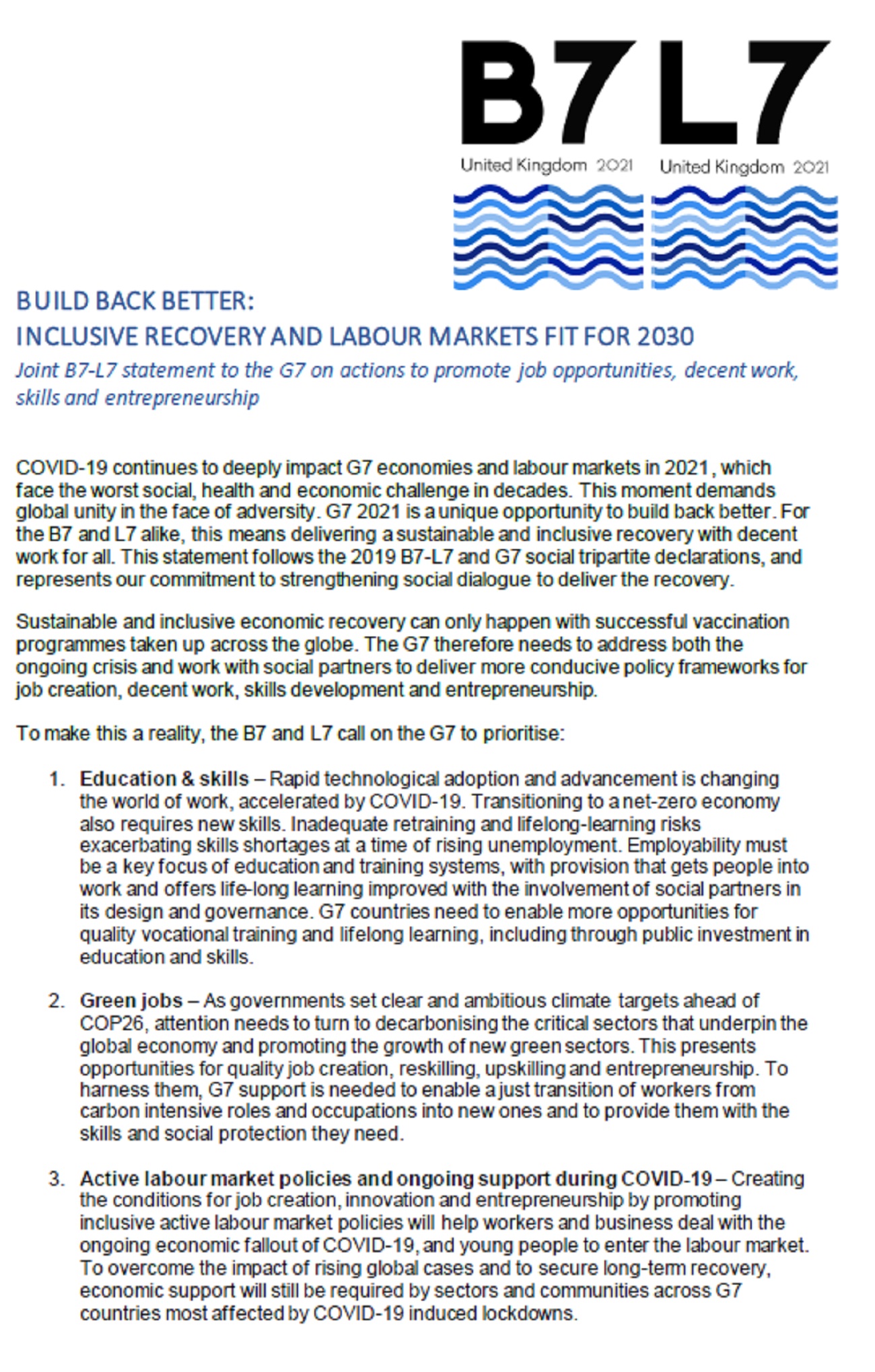Labour market policy
Ensuring employment opportunities for all with fair wages and decent working conditions are key trade union principles. The OECD makes policy recommendations and publishes studies that influence labour market policies including working conditions and wages, the retirement age, and workers’ rights.
Through our engagement with the OECD’s Employment, Labour and Social Affairs Committee and its working parties, as well as the OECD’s Action Programme for Local Employment and Economic Development, TUAC is working to ensure that these recommendations and studies support and promote job quality, fair wages and strong labour market institutions and social dialogue, including collective bargaining and trade union representation.
TUAC’s work in this area is led by Filip Stefanovic and Adnan Habibija. For more information, please contact stefanovic@tuac.org and habibija@tuac.org.
OECD Steel Committee should ensure global minimum standards for steelworkers
The 90th session of the OECD Steel Committee on 22 September focused on global steel market prospects and key issues in the steel sector, including global overcapacity. TUAC, IndustriALL Global Union and industriAll European Trade Union used the opportunity to raise awareness among OECD member ...
TUAC Statement on Youth 2021/ Déclaration du TUAC sur la Jeunesse 2021
Youth unemployment rose in all OECD countries during the crisis. Many existing challenges faced by young people are being exacerbated during this time including: Education quality and costs – including student debt; Lack of income to cover housing and food costs becoming dependent on food banks ...

Comments on the Employment Outlook 2021 – More descriptive than prospective / Commentaires sur les Perspectives d’emploi 2021 – Plus
Executive Summary The OECD Employment Outlook 2021 manages to fulfil one purpose: it shows the effects of the crisis on employment, jobs and vulnerable groups, as well as highlights government responses. It also opens up new issue areas: domestic outsourcing and the regulation of working time. ...

G20 Labour and Employment Ministers’ declaration welcomed
The declaration closely reflects the priorities of the L20, with the exception of investment in job creation. The L20 urges the G20 leaders to prioritise full employment and just transition measures for tackling both the climate and the jobs crisis. Comprehensive plans are required, along with ...

BUILD BACK BETTER: INCLUSIVE RECOVERY AND LABOUR MARKETS FIT FOR 2030 – Joint B7-L7 statement
On the eve of the G7 Summit in Cornwall (UK), the L7 and B7 released a joint statement. The social partners call on Leaders to make strong statements on an inclusive recovery and commit to actions to promote job opportunities, decent work, skills and entrepreneurship. The full statement can be ...
TUAC launches Youth Network / Le TUAC lance son réseau Jeunesse
On 19 May, the TUAC brought together its newly created Youth Network for the first time. This group of young trade union activists, economists and youth coordinators will help shaping the TUAC’s position on a better recovery and quality jobs for youth. The generation that entered the labour ...
Comments on the 2021 OECD Going for Growth: Structural Reforms and the Pandemic
Executive Summary On 14 March, the OECD published the 2021 edition of Going for Growth, which represents the OECD’s formula for countries’ economic success through the implementation of structural reforms. Over the last years, there has been a progressive attempt to shift the publication’s ...
Trade unions warn the OECD Steel Committee about issues of overcapacity and occupational health and safety
TUAC, in partnership with IndustriALL Global Union and industriAll Europe, attended the 89th OECD Steel Committee session on 19, 22 and 23 March. The meeting brought together over 120 governmental and employers’ delegates to discuss recent developments in the steel sector during the COVID-19 ...
